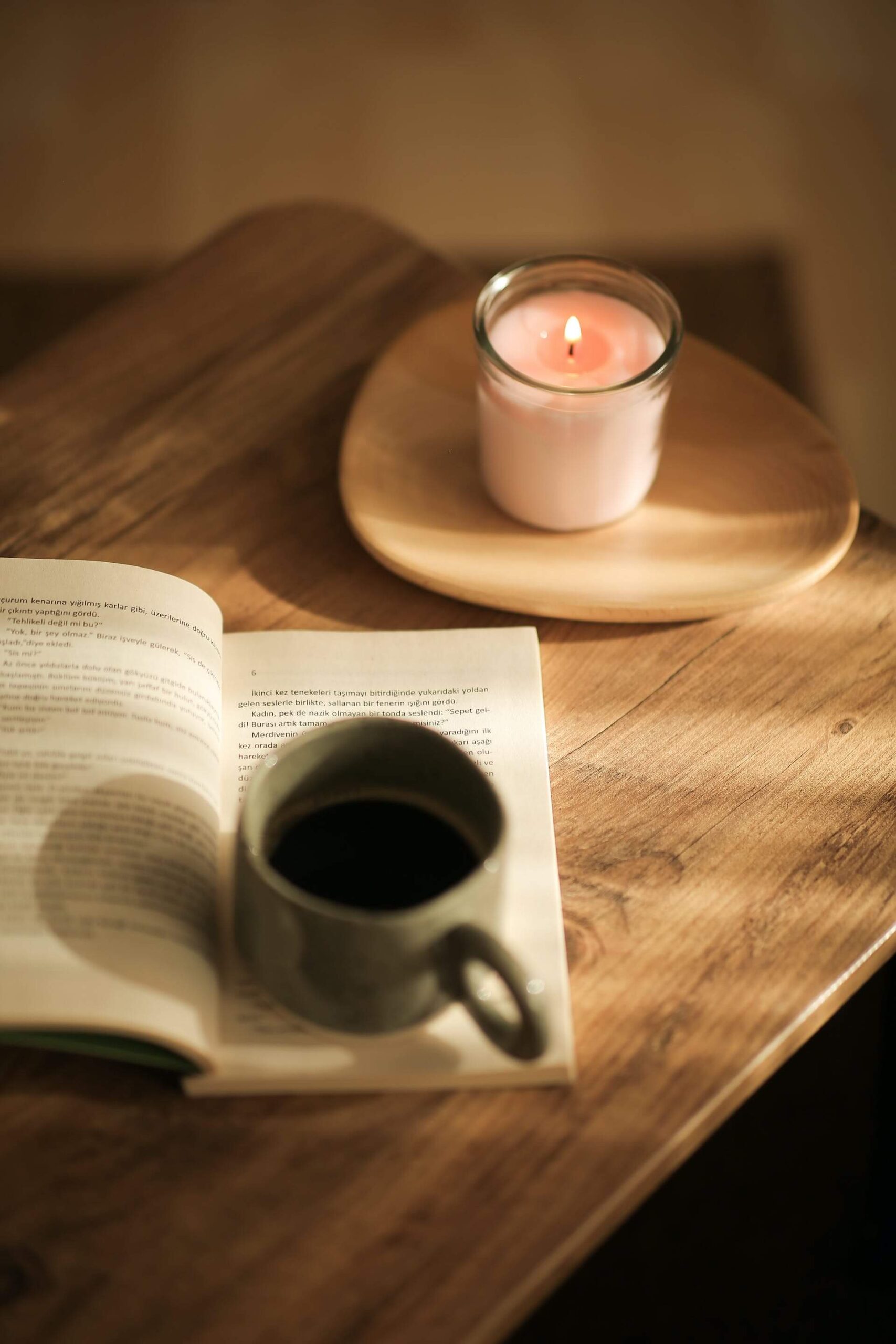I used to be deeply allergic to the word “lazy.”
I’d pack my calendar, say yes to everything, and measure my worth by how productive I was on any given day (including weekends).
And when I wasn’t doing something? I felt like I was failing. Like I was letting life pass me by. Like I was a fraud.
But then life did what life does: it humbled me.
I hit burnout. I got tired of chasing some invisible gold star.
I didn’t know the benefits of being lazy. However, I started noticing that my “lazy” days were beyond important.
They were the ones where I ditched the list and was starfishing on the couch watching old episodes of Living Single.
These days were actually when I felt most like me. Clear. Calm. Creative. Whole.
So here’s the truth I wish someone had handed me years ago: laziness isn’t the enemy. Sometimes, it’s the medicine.
It’s the reset button. The clarity window that you need.
Let’s break it down.
What “Laziness” Really Is (and Why You Might Feel Guilty About It)
Here, ‘lazy’ = pressure-free rest – zero performance, zero guilt.
Let’s start by naming something: most of us were never taught how to rest without guilt.
From an early age, productivity is treated like a moral currency.
We’re praised for being busy, rewarded for being stretched thin, and often told (directly or indirectly) that downtime is something to be “earned.”
What happens when we get much-deserved rest? Shame, anxiety, and fear creep in.
That loud part of our brain tells us that we’re not enough, unmotivated, or somehow not pulling our weight.
But here’s the absolute truth. Being “lazy” isn’t about a lack of ambition.
Often, it’s a signal from your body or brain that says, “I need a moment.”
It’s your nervous system calling for a timeout. It’s your mind asking for a pause so it can function properly again.
Laziness, in this light, is not a flaw, it’s a function.
And when you stop fighting it, you start discovering the very real benefits of being lazy: more clarity, more energy, more creativity, better decisions, and a far healthier relationship with your time and yourself.
So if you’ve been carrying guilt for slowing down or needing rest, consider this your official permission slip: there’s nothing wrong with you.
You’re not falling behind. You’re doing what humans are built to do: pause, recalibrate, and return to life fuller and stronger.
7 Surprisingly Real Benefits of Being Lazy
1. Stillness Sparks Creativity
Some of my best ideas haven’t come from sprinting through a task list.
They’ve actually shown up while I was horizontal, my phone on Do Not Disturb, doing absolutely nothing productive.
Our brains aren’t made to be on-call 24/7.
They need downtime to wander, play, and connect dots.
That wandering you do when you scroll through Pinterest for an hour or stare out your window with no purpose?
That’s your brain doing background magic.
The lesson: Give yourself margin. That’s where creativity lives.
2. You Get Real About What Matters
I once spent an entire week “resting” because I was too overwhelmed to do anything else.
My to-do list was a monster, never-ending, and impossible to complete.
And the more I tried to power through it, the more resentful I got.
So I gave in. I flopped.
I let the emails wait (and pile up against my instincts to clear them all).
Sometimes being ‘lazy’ is just good self-care in disguise.
And guess what? The world didn’t implode.
What did happen was true clarity.
I saw what actually needed my attention *and* what I was doing purely out of habit or well-established guilt.
The lesson: Lazy days are filters. They show you what’s essential and what’s just noise.
3. You Solve Problems Without Pushing
I’ve lost count of how many times I’ve gone to bed stuck in a thought loop, only to wake up with a crystal-clear answer I couldn’t force the night before.
Sometimes, doing nothing is the solution.
Your mind needs time to unknot things.
For me, it’s usually during “low-brain” moments, AKA showering, walking the dog, rewatching something I’ve already seen a hundred times.
That’s when the mental fog clears.
Not sure how to ‘lazy’? Try these simple de-stress activities that recharge without pressure.
The lesson: Smart solutions come from still minds.
4. You Become More Productive (For Real)
Stop feeling guilty about rest.
Let me say this *super* loud for the people in the back: productivity is not the same as never-ending motion.
Before I embraced downtime, I worked in loops. Spinning my wheels, tweaking every little thing, and second-guessing *every* decision.
I’d spend hours doing what would’ve taken 30 minutes if I had actually rested.
Now? I take the break first. I stretch the deadline if I need to.
And when I do actually work, I show up clear-headed and decisive.
More rest today can lead to less morning anxiety tomorrow.
The lesson: Laziness isn’t the opposite of productivity. It’s how you recover the energy to be effective.
5. Your Nervous System Heals
After one particularly chaotic season, I remember taking a day off with zero plans.
I stayed in pajamas (a ratty t-shirt and sweatpants). I made no effort to be “useful.”
And by 2 p.m., I realized something wild: I could breathe.
Not the shallow, tension-filled kind, but a deep, satisfying, my-body-feels-safe kind of breath.
That’s what rest does. It teaches your nervous system that you’re not always under attack.
It signals that you’re allowed to be without performing.
The lesson: Your body isn’t lazy. It’s trying to recover. Let it.
6. You Connect With Who You Actually Are
There’s a version of me that only shows up when I’m unbothered, unhurried, and off the clock.
She’s curious. Playful. Kind. Less judgy. Way more herself.
And she doesn’t come out when I’m forcing every second of my day to be “efficient.”
She shows up when I putter, when I’m not trying to be impressive.
So often, we’re so busy proving ourselves that we lose sight of who we even are.
Stillness brings her back.
The lesson: Lazy moments are identity reconnections. Don’t skip them.
7. You Reclaim Joy (and Joy Is Productive, Too)
The guilt around “wasting time” is one of the biggest lies we’ve swallowed.
Because here’s the thing: joy isn’t frivolous. Joy is fuel.
I’ve had whole days that looked like nothing. Just slow brunches, walks with no destination, lying on the floor doing absolutely nothing.
And I came out of them more alive, more in tune, more me than days packed with checkmarks.
The lesson: Joy-filled rest refills you in ways accomplishment can’t.
The Takeaway: Rest Isn’t Lazy, It’s Smart Leadership
Let’s reframe this once and for all: rest isn’t the opposite of productivity. It’s what makes sustainable productivity possible.
The benefits of being lazy, yes, lazy, go far beyond giving yourself a quick recharge.
They make space for all the best things in your life.
There’s no shame in slowing down. Sometimes, the most beneficial thing you can do is press pause.
Not because you’re giving up or slowing down, but because you’re tuning in.
Your energy, your focus, your peace of mind? They’re not unlimited. And learning to protect them isn’t selfish, it’s smart.
Take it from me, a woman who once believed she had to earn rest, only to realize after complete and total exhaustion that it doesn’t work that way.
You don’t need permission to breathe. You don’t have to justify a quiet evening or a weekend spent doing absolutely nothing.
If you’re tired, rest. If your brain is foggy, slow down. If your body says no, listen.
Your worth is not up for debate, and, trust me, when you take care of your inner world, the outer world tends to cooperate.
So take the break. Enjoy the stillness. Let the pause do its work.
Because you’re not falling behind, you’re learning how to move forward differently.
And that’s not laziness. That’s leadership.
If you’re running on fumes, this list of burnout-busting strategies pairs perfectly with guilt-free rest.

And why that nap, binge, or day of doing “nothing” might be the smartest thing you do all week.
Real-Life
Work in Progress.
Founder. Writer.
Roxy is the creator of The Everyday Flourish, a relatable personal growth blog for women who are tired of burnout, chaos, and hustle culture.
A recovering overthinker and unofficial life guinea pig, she shares honest self-care strategies, ADHD-friendly productivity tips, and mindset shifts that actually feel doable.
Around here, personal growth comes with grace, not pressure - and a lot fewer to-do lists.







